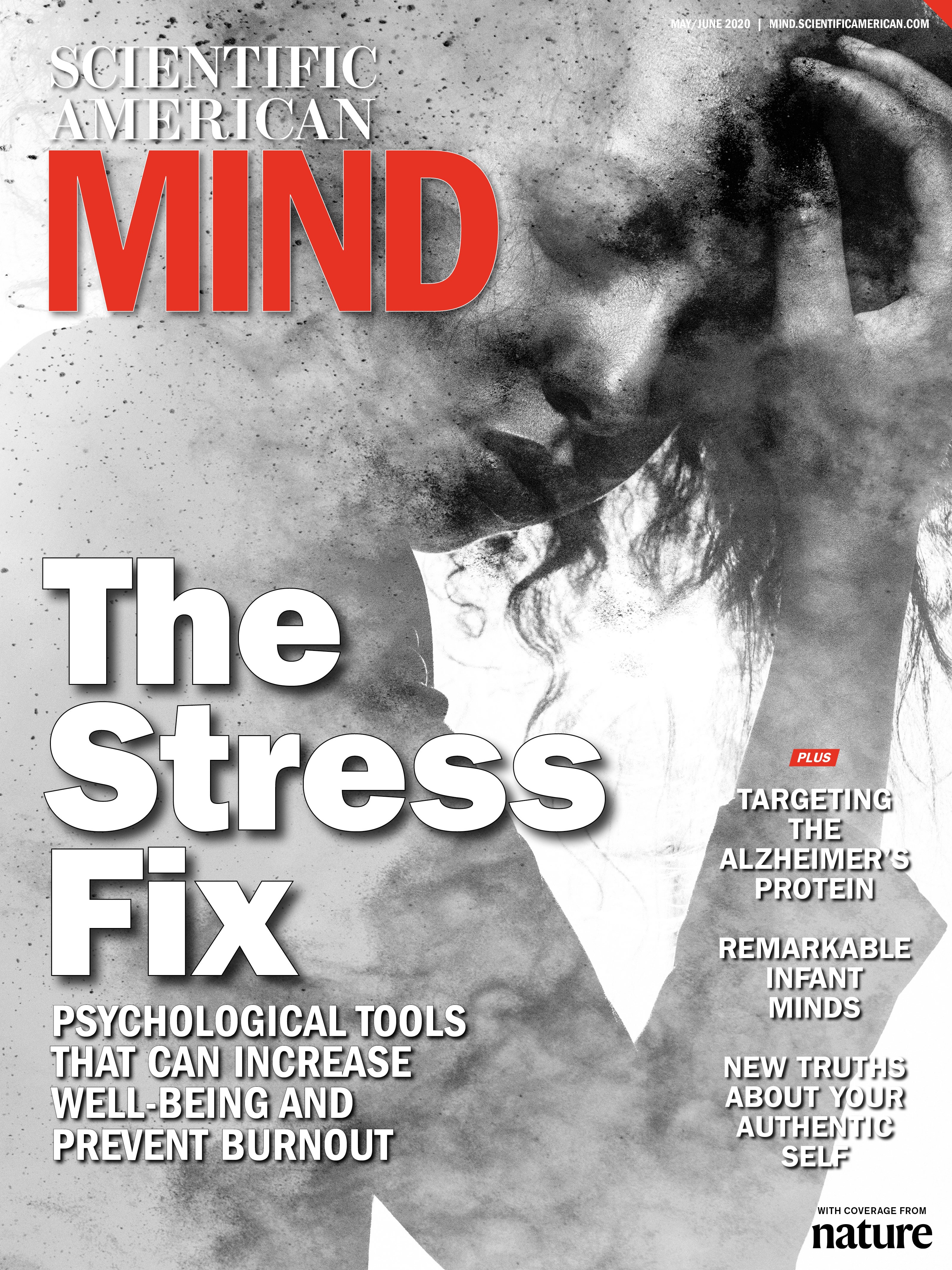We use cookies to improve your experience on our site and to show you personalised advertising. To find out more, read our privacy policy and cookie policy
- Media Centre
:format(jpg)/prod01/channel_3/assets/media-centre/image-library/file-20191014-135505-1yio01t-844X563.jpg)

Is it OK to listen to music while studying?
October 17, 2019
UOW researcher answers this tricky question as NSW students start written exams for the HSC.
It’s a good question! In a nutshell, music puts us in a better mood, which makes us better at studying – but it also distracts us, which makes us worse at studying.
So if you want to study effectively with music, you want to reduce how distracting music can be, and increase the level to which the music keeps you in a good mood.
Read more: Curious Kids: Why do adults think video games are bad?
Music can put us in a better mood
You may have heard of the Mozart effect – the idea that listening to Mozart makes you “smarter”. This is based on research that found listening to complex classical music like Mozart improved test scores, which the researcher argued was based on the music’s ability to stimulate parts of our minds that play a role in mathematical ability.
However, further research conclusively debunked the Mozart effect theory: it wasn’t really anything to do with maths, it was really just that music puts us in a better mood.
Research conducted in the 1990s found a “Blur Effect” – where kids who listened to the BritPop band Blur seemed to do better on tests. In fact, researchers found that the Blur effect was bigger than the Mozart effect, simply because kids enjoyed pop music like Blur more than classical music.
Being in a better mood likely means that we try that little bit harder and are willing to stick with challenging tasks.

Music can distract us
On the other hand, music can be a distraction – under certain circumstances.
When you study, you’re using your “working memory” – that means you are holding and manipulating several bits of information in your head at once.
The research is fairly clear that when there’s music in the background, and especially music with vocals, our working memory gets worse .
Likely as a result, reading comprehension decreases when people listen to music with lyrics . Music also appears to be more distracting for people who are introverts than for people who are extroverts, perhaps because introverts are more easily overstimulated.
Some clever work by an Australia-based researcher called Bill Thompson and his colleagues aimed to figure out the relative effect of these two competing factors - mood and distraction.
They had participants do a fairly demanding comprehension task, and listen to classical music that was either slow or fast, and which was either soft or loud.
They found the only time there was any real decrease in performance was when people were listening to music that was both fast and loud (that is, at about the speed of Shake It Off by Taylor Swift, at about the volume of a vacuum cleaner).
But while that caused a decrease in performance, it wasn’t actually that big a decrease. And other similar research also failed to find large differences.

So… can I listen to music while studying or not?
To sum up: research suggests it’s probably fine to listen to music while you’re studying - with some caveats.
It’s better if:
- it puts you in a good mood
- it’s not too fast or too loud
- it’s less wordy (and hip-hop, where the words are rapped rather than sung, is likely to be even more distracting)
- you’re not too introverted.
Happy listening and good luck in your exams!
Read more: Curious Kids: Why do old people hate new music?
Timothy Byron , Lecturer in Psychology, University of Wollongong
This article is republished from The Conversation under a Creative Commons license. Read the original article .
UOW academics exercise academic freedom by providing expert commentary, opinion and analysis on a range of ongoing social issues and current affairs. This expert commentary reflects the views of those individual academics and does not necessarily reflect the views or policy positions of the University of Wollongong.
You may also be interested in
- Academic Advising
- Basic Needs
- Career Center
- Centers for Educational Equity and Excellence
- Centers for Educational Justice & Community Engagement
- Counseling and Psychological Services (CAPS)
- Financial Aid & Scholarships
- Graduate Services
- Greater Good & Belonging
- International Office
- LEAD Center
- New Student Services
- Public Service Center
- Recreational Sports
- Residential Life
- Student Environmental Resource Center
- University Health Services
- Physical activity
- Staying healthy
- Mental health
- Mindfulness
- Spirituality
- Test taking
- Time management
- Accessibility
- Environment
- Race and ethnicity
- Self-improvement
- Substance use
- Communication
- Friendships
- Romantic relationships
- Sexual assault and harassment
- sexual culture
- Sexual health

Back to school? Here’s how to handle your stress

4 study strategies to help you prepare for finals

Does listening to music while studying help you do better on…

Ask the counselor: “When someone betrays me, I have a hard…

Care for your gut for better mental health

Ask the doc: “How can I sleep better when I’m feeling…

A guide on exercise apparel through the seasons

Diabetes Awareness Month: Why it’s important to watch your sugar

Why feeling tired can lead to junk food cravings

UCookbook: Bean burrito bowl

5 healthy breakfasts for when you’re on the go

Student Recipes: “Pasta” Squash Salad

Ask the professor: “How can you stop feeling like a bad…

Ask the counselor: “How do you differentiate normal sadness from clinical…

A time-management strategy for every personality: What’s yours?

Ask the professor: “I’m trying to figure out what the best…


3 ways exercise can help you shine at school

Relieve your stress by trying this 10-minute guided imagery meditation

Breast Cancer Awareness Month: How to do a self-exam for breast…

How you can manage your stress and become more resilient

Take this quiz to find out if you make a good…

Ask the counselor: How can I support my friend going through…

The truth about what it means to be asexual

Stop scrolling: How to tell if you’re addicted to social media

How you can start investing on any budget

Debit or credit cards: which one is right for you?

Practical tips for staying on top of your student loans

How to write a standout cover letter

Use these 6 simple scenarios when you need to explain consent…

What to do if you (or a friend) is being stalked

4 ways to support a male friend who’s been sexually assaulted

How to pick the best birth control option for you
Does listening to music while studying help you do better on tests.

Rate this article and enter to win
Studying for finals or completing your end-of-semester projects? (Cue the opening of Spotify’s “Ultimate Study Music Playlist” on devices everywhere.) Many students attest to the power of music to elevate their academic performance, according to a CampusWell survey. “Music helps me calm down before a big test, focus better [while] studying, and cut out distractions,” says Kali G., an online student at the University of Wyoming.
Music can lower stress levels and improve test performance
Music can stimulate our thinking and sustain our attention for some study tasks, research suggests. A 2020 study found that nursing students who listened to relaxing music while doing progressive muscle relaxation (a mindfulness technique) before a test performed better on their exams and had lower stress levels than students who did neither before the exam. In another study, students who attended a videotaped lecture with classical music playing in the background scored higher on a subsequent quiz than students who heard the lecture without music. The pauses between musical movements may help our brains focus and organize new information, according to a study in Neuron .
When music hinders learning
It doesn’t all sound good, though. In a small study published in Frontiers in Psychology in 2017, researchers found that students who listened to music while reading a text on the concept of time zones scored poorly on a test compared with those who studied in silence.
So does music help or hinder learning? “It often depends on the individual and what works best for them,” says Stephen Williams, coordinator for the music therapy program at Capilano University in North Vancouver, British Columbia, Canada. “For most people, relaxing music in the background can help create an atmosphere that is supportive of studying. Others, who might find background music distracting, might use the music as a reward or a break from studying.”
Even if you do well with background music while studying, be wary of lyrics, drama, a too-upbeat tempo, and high volume. Research has shown that fast, loud music reduces reading comprehension.
If you’re working on a creative task, try an ambient noise soundtrack. A small 2022 study asked undergraduates to list as many different uses they could think of for everyday items (first a water bottle, and then a hanger) within one minute. While coming up with ideas for the water bottle participants thought in silence, and for the hanger they listened to ambient café noise. Participants provided more suggestions and, when prompted for “original” ideas, were more creative when they had ambient noise in the background. You can find a few ambient noise options on YouTube or through apps like Coffitivity.

There is no one-size-fits-all music solution. The above suggestions are based on past research and studies—you may find they don’t fit with your study style, and that’s OK! Try out different playlists, genres, and songs to find the one that works best for you.
Students’ favorite study music
“I listen to all sorts of music when I’m studying, but it really depends on what type of studying I’m doing to help decide on a genre. It’s always good to listen to classical music when you’re trying to read textbooks or write important papers. Other times, you need music that will keep you pumped and [keep] you from falling asleep. Then I usually go for something upbeat.” —Jessica V., fourth-year student, Metropolitan State University of Denver, Colorado
“Soundtracks, classical music, New Age, or light electronic music tend to suit me well for studying.” —Alec S., second-year graduate student, Colorado School of Mines, Golden
“I prefer music that fades into the background, like lo-fi hip-hop or white noise. Some light EDM [electronic dance music] may also work for some people.” —Jeremy B., first-year graduate student, University of Florida, Gainesville
“I usually listen to classical piano or mixes that incorporate binaural beats to help me focus.” —Gabrielle H., fourth-year student, University of California, Berkeley
“I like to listen to soundtracks, especially video game soundtracks. Their sound is designed to help you focus, and they can pep you up for a difficult assignment.” —Jacob W., first-year graduate student, Duke University Durham, North Carolina
“Instrumental music, always. I usually listen to lo-fi or the soundscapes/sleep music from the Headspace app. Lyrics or anything catchy and upbeat is way too distracting.” —Mariyam M., first-year student, Kwantlen Polytechnic University, British Columbia, Canada
“I listen to top 40/pop/upbeat music (but on a low volume). It helps me to stay awake and concentrate. I have ADHD, and I end up fidgeting or getting super distracted if there is no music.” —Alyssa D., second-year student, Mount Royal University, Calgary, Alberta, Canada
Background noise that works for work: Coffitivity
Seven Spotify playlists to boost academic success: The Music Universe
Study Beats Playlist: University of Texas at Austin
Classical music live stream: WQXR
Should you study with music? The research-backed verdict: Med School Insiders
Want to increase your chances to win?
Refer up to 3 of your friends and when each visits , you will receive an additional entry into the weekly drawing.
Please note : Unless your friend chooses to opt-in, they will never receive another email from after the initial referral email.
Individuals under the age of 13 may not enter or submit information to this giveaway. Your data will never be shared or sold to outside parties. View our Privacy Policy . TERMS & CONDITIONS
Be sure to monitor your email as we’ll be choosing winners each Wednesday!
Connect with us on Facebook and Twitter to find out who the lucky winners are.

Stephen Williams, program coordinator, music therapy, Capilano University, North Vancouver, British Columbia, Canada.
Adams, B. E. (n.d.). The effect of background music on standardized math test performance in high school students. Young Scientist: High School Research Journal. http://youngscientistjournal.org/youngscientistjournal/article/the-effect-of-background-music-on-standardized-math-test-performance-in-high-school-students
Ahmad, Y., Zainon, F., Ghazali, Z., Man, N., et al. (2017). The influence of music on memorization performance of mathematics students. Proceedings of the ICECRS, 1 (2), 99-107. https://doi.org/10.21070/picecrs.v1i2.1443
Baker, M. (2007, August 1). Music moves brain to pay attention, Stanford study finds . Stanford Medicine News Center. https://med.stanford.edu/news/all-news/2007/07/music-moves-brain-to-pay-attention-stanford-study-finds.html
CampusWell survey, January 2020.
Dosseville, F., Laborde, S., & Scelles, N. (2012). Music during lectures: Will students learn better? Learning and Individual Differences, 22 (2), 258–262. https://doi.org/10.1016/j.lindif.2011.10.004
Engel, A. (2023, April 28). Studying for finals? Let classical music help. USC News, University of Southern California. https://news.usc.edu/71969/studying-for-finals-let-classical-music-help/
Forde, W., Schellenberg, G., & Letnic, A. K. (2011). Fast and loud background music disrupts reading comprehension. Psychology of Music, 40 (6), 700–708. https://psycnet.apa.org/doi/10.1177/0305735611400173
Gallego-Gómez, J. I., Balanza, S., Leal-Llopis, J., García-Méndez, J. A., et al. (2020). Effectiveness of music therapy and progressive muscle relaxation in reducing stress before exams and improving academic performance in nursing students: A randomized trial. Nurse Education Today, 84, 104217. https://doi.org/10.1016/j.nedt.2019.104217
Jubbal, K. (2023, July 6). Should you study with music? The research-backed verdict. Med School Insiders. https://medschoolinsiders.com/pre-med/should-you-study-with-music/
Kandari, C., Raijas, P., Ahvenainen, M., Philips, A. K., et al. (2015). The effect of listening to music on human transcriptome. PeerJ. https://peerj.com/articles/830
Lehmann, J., & Seufert, T. (2017). The influence of background music on learning in the light of different theoretical perspectives and the role of working memory capacity. Frontiers in Psychology, 8, 1902 . https://doi.org/10.3389/fpsyg.2017.01902
Mercer, M. (2021, March 10). Does listening to music really help you study? College of Arts & Sciences at Texas A&M University. https://liberalarts.tamu.edu/blog/2021/03/10/does-listening-to-music-really-help-you-study/
Mones, P., & Massonnié, J. (2022). What can you do with a bottle and a hanger? Students with high cognitive flexibility give more ideas in the presence of ambient noise. Thinking Skills and Creativity, 46 , 101116. https://doi.org/10.1016/j.tsc.2022.101116
Sridharan, D., Levitin, D. J., Chafe, C. H., Berger, J., et al. (2007). Neural dynamics of event segmentation in music: Converging evidence for dissociable ventral and dorsal networks. Neuron, 55 (3), 521–532. https://doi.org/10.1016/j.neuron.2007.07.003
RELATED ARTICLES MORE FROM AUTHOR
Ask the professor: “i’m trying to figure out what the best study method is for me—how do i do that”.
- Terms of use
- Contest rules
- Privacy policy
March 3, 2020
Does Music Boost Your Cognitive Performance?
The answer depends on your personality
By Cindi May

Getty Images
Music makes life better in so many ways. It elevates mood , reduces stress and eases pain . Music is heart-healthy , because it can lower blood pressure , reduce heart rate and decrease stress hormones in the blood. It also connects us with others and enhances social bonds . Music can even improve workout endurance and increase our enjoyment of challenging activities .
The fact that music can make a difficult task more tolerable may be why students often choose to listen to it while doing their homework or studying for exams. But is listening to music the smart choice for students who want to optimize their learning?
A new study by Manuel Gonzalez of Baruch College and John Aiello of Rutgers University suggests that for some students, listening to music is indeed a wise strategy, but for others, it is not. The effect of music on cognitive functioning appears not to be “one-size-fits-all” but to instead depend, in part, on your personality—specifically, on your need for external stimulation. People with a high requirement for such stimulation tend to get bored easily and to seek out external input. Those individuals often do worse , paradoxically, when listening to music while engaging in a mental task. People with a low need for external stimulation, on the other hand, tend to improve their mental performance with music.
On supporting science journalism
If you're enjoying this article, consider supporting our award-winning journalism by subscribing . By purchasing a subscription you are helping to ensure the future of impactful stories about the discoveries and ideas shaping our world today.
But other factors play a role as well. Gonzalez and Aiello took a fairly sophisticated approach to understanding the influence of music on intellectual performance, assessing not only listener personality but also manipulating the difficulty of the task and the complexity of the music. Whether students experience a perk or a penalty from music depends on the interplay of the personality of the learner, the mental task, and the music.
In the study, participants first completed the Boredom Proneness Scale , which is a personality test used to determine need for external stimulation. They then engaged in an easy cognitive task (searching for the letter A in lists of words) and a more challenging one (remembering word pairs). To control for practice and fatigue effects, half of the subjects completed the easy task first, while the other half completed the challenging one first. Participants finished both tasks under one of three sound conditions: (a) no music, (b) simple music or (c) complex music. All of the music was instrumental, and music complexity was manipulated by varying the number of instruments involved in the piece. Simple music included piano, strings and synthesizer, while complex music added drums and bass to the simple piece.
The data suggest that your decision to turn music on (or off) while studying should depend on your personality. For those with a high need of external stimulation, listening to music while learning is not wise, especially if the task is hard and/or the music is complex. On the simple task of finding A’s, such subjects’ scores for the music condition were the same (for simple music) or significantly worse (for complex music) than those for the silent condition. On the complex task of learning word pairs, their performance was worse whenever music was played, regardless of whether it was simple or complex.
For those with a low need of external stimulation, however, listening to music is generally the optimal choice. On the simple task of findings A’s, such participants’ scores for the music condition were the same (for simple music) or dramatically better (for complex music) than those for the silent condition. On the complex task of learning word pairs, the participants showed a small but reliable benefit with both simple and complex music, relative to silence.
The results suggest that there are substantial individual differences in the impact of music on cognitive function, and thus recommendations regarding its presence in the classroom, study hall or work environment may need to be personalized. Students who are easily bored and who seek out stimulation should be wary of adding music to the mix, especially complex music that may capture attention and consume critical cognitive resources that are needed for successful task completion. On the other hand, students with a low need for stimulation may benefit significantly from the presence of music, especially when completing simple, mundane tasks.
Before students decide to slip in their earbuds, though, they should carefully consider both their musical selection and the nature of the task. All of the music used in the present study was instrumental, and lyrical music will likely be more complex. Complexity appears to increase arousal, and the Yerkes-Dodson law suggests that a moderate level of arousal produces optimal performance. When there is too little or too much arousal, performance drops. Thus, the benefits of music for those with a low need for external stimulation that were observed here could diminish or even disappear with the added complexity of lyrics.
Similarly, increases in the complexity of a cognitive task might also reduce or eliminate the benefit of music. Although the “complex” task used in this study (learning word pairs) was only moderately challenging, the increase in complexity, relative to the simple task, was enough to reduce music’s positive effect. With a highly challenging cognitive task (e.g., text comprehension or exam preparation), even those with a low need for external stimulation may fail to show such an effect with music.
With the right (low-need-for-stimulation) personality, the right (instrumental) music and the right (low-to-moderately-difficult) task, the presence of music may significantly improve cognitive functioning. Given the many other physical, emotional and psychological benefits of music, that subscription to Spotify just might pay for itself!
Cindi May is a professor of psychology at the College of Charleston. She explores avenues for improving cognitive function and outcomes in college students, older adults and individuals who are neurodiverse.


IMAGES
VIDEO